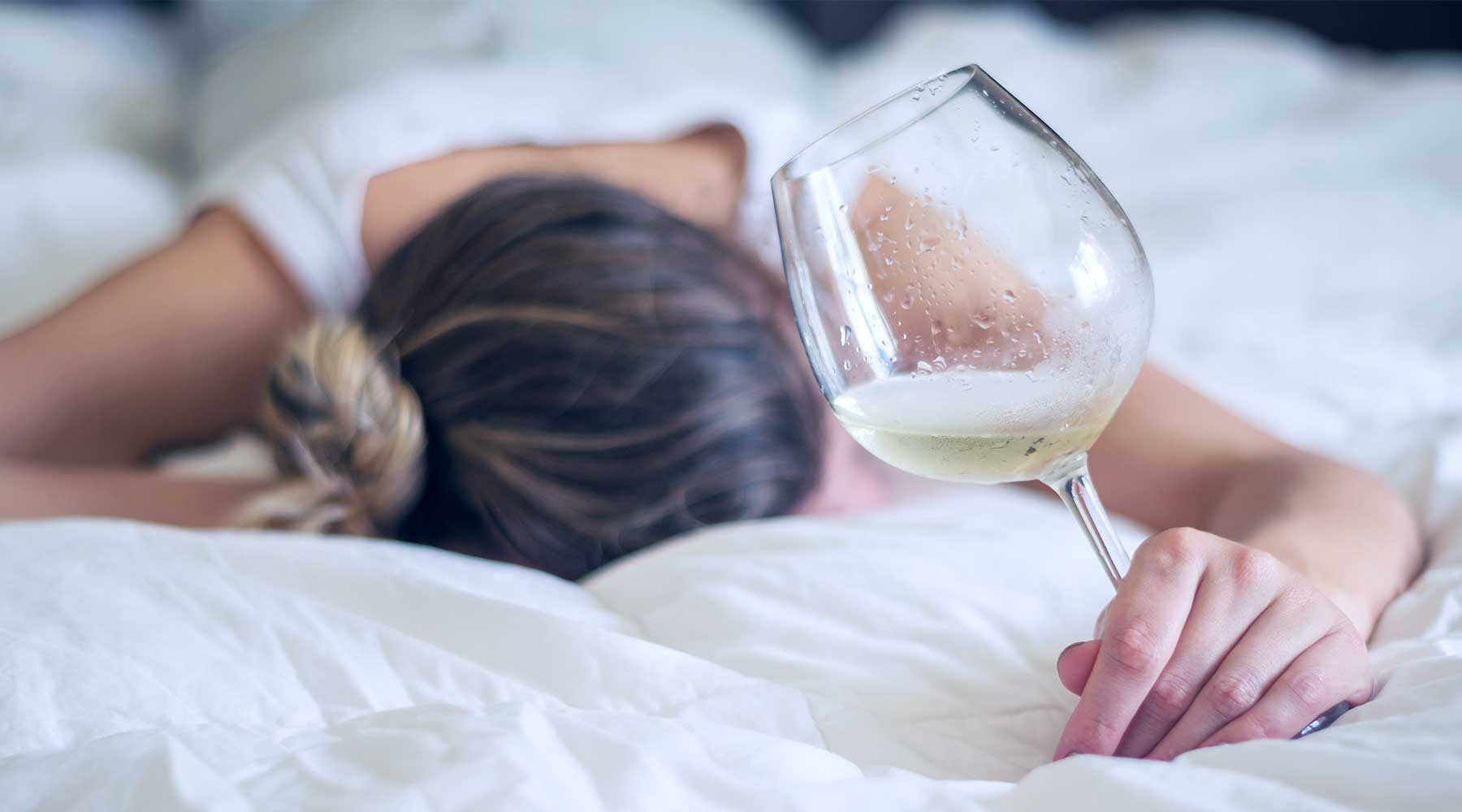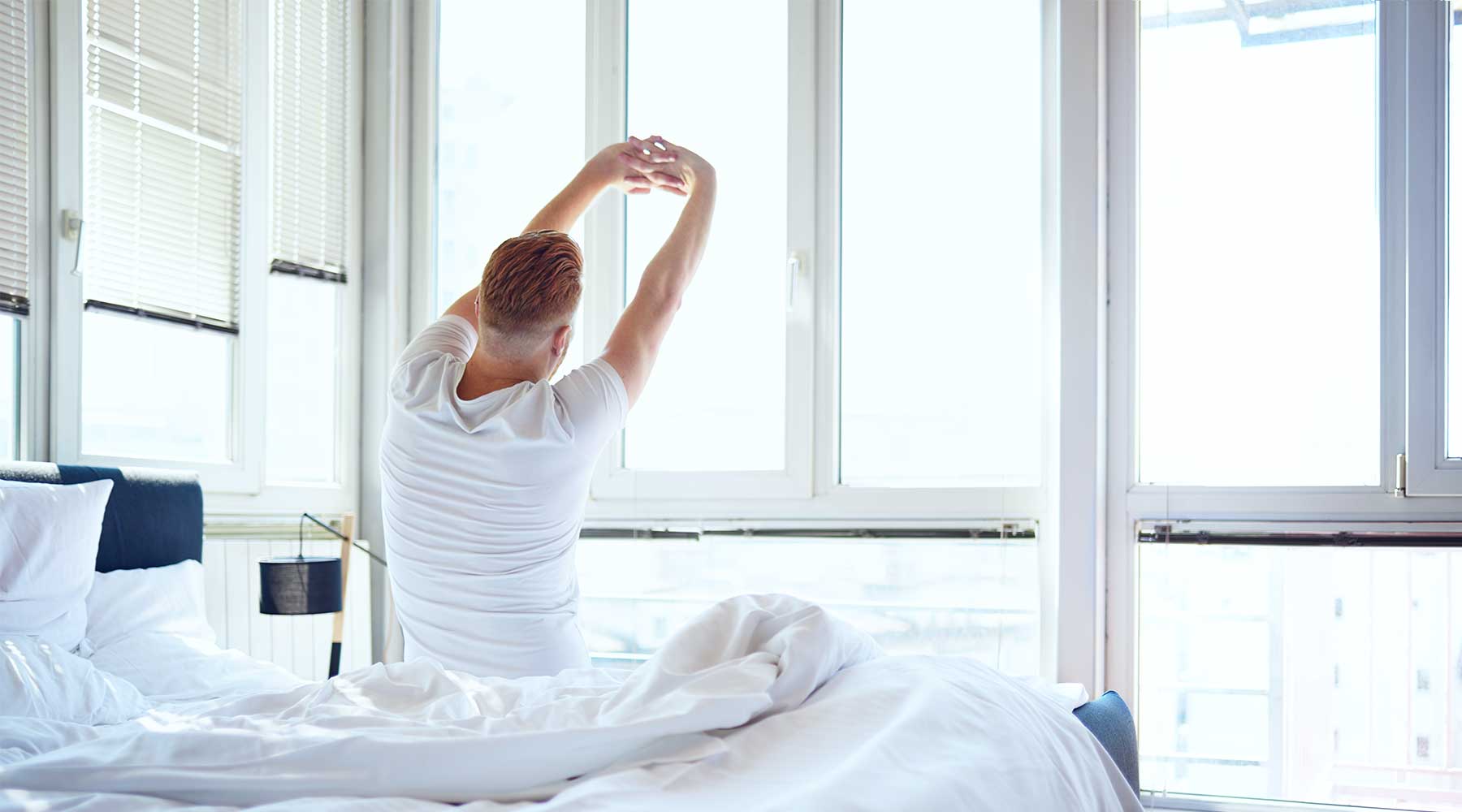
How does alcohol affect sleep ?
A glass of red wine in the evening is considered a proven sleep aid, but alcohol, especially in large quantities, has numerous negative effects on sleep and health. Here you can find out exactly how alcohol affects our sleep and what you can do to sleep well despite drinking alcohol.
Table of contents
- alcohol before bedtime
- The Effects of Alcohol on the Body
- The Effect of Alcohol on Sleep
- Tips for Drinking Alcohol Before Sleep
- Conclusion
1. Alcohol before bedtime
A cool beer after work or a relaxing glass of wine in the evening are part of everyday life for many people. Moderate alcohol consumption is said to have a positive effect on cardiovascular health and is considered an effective remedy against difficulty falling asleepIn fact, drinking alcohol before going to bed can help you fall asleep faster - but this is usually followed by numerous negative effects that disrupt healthy sleep and mean that we fall asleep faster but wake up less rested.
2. The effect of alcohol on the body
Alcohol is a cell poison that initially has a calming effect, but in large quantities it causes great damage to our brain and numerous other organs. Alcohol is usually absorbed through the mucous membranes and the digestive system and enters the bloodstream until it is slowly broken down in the liver. This produces many harmful degradation products, such as acetaldehyde, which is cell-damaging and classified as carcinogenic. This is further processed into acetic acid and is ultimately excreted from the body as carbon dioxide and water.

The alcohol concentration in our blood is at its highest after about 30 to 60 minutes. The alcohol is quickly distributed in the bloodstream and ultimately in the entire body water, which means that it affects almost all tissues, organs and muscles in our body. It has a particularly strong effect on the brain, which has a good blood supply, influencing the hormonal balance and the function of the brain cells by, among other things, inhibiting the transmission of stimuli and the nervous system. The complex breakdown of the poison in the liver also promotes the production of fatty acids, which can lead to liver damage in the long term.
3. The effect of alcohol on sleep
That an alcoholic nightcap It is no coincidence that drinking alcohol before going to bed is supposed to be beneficial for sleep, because alcohol also has a calming and “sedative” effect on the body. It slows down brain and nerve activity, lowers heart rate and promotes the production of certain neurotransmitters (e.g. gamma-aminobutyric acid GABA), so that the muscles, brain and psyche relax. This helps in the evening, stress to reduce and calm down, which makes it easier to fall asleep. However, as soon as alcohol is broken down, the effect quickly turns into the opposite. The heart rate increases, stress reactions occur in the body and our sleep becomes easier. We then wake up frequently, which repeatedly disturbs sleep and also shortens the overall length of sleep.

Alcohol not only prevents us from sleeping through the night, but also has a direct impact on our sleep structure and the individual sleep phasesVarious studies show that after consuming alcohol, sleep is more fragmented overall, we wake up more often and therefore spend less time in restful deep sleep.By measuring brain activity during sleep, researchers were also able to determine that subjects had increased activity in the frontal areas of their brain after consuming alcohol. This means that the body and mind cannot regenerate optimally and the quality of sleep decreases. In addition, REM sleep is also suppressed after increased alcohol consumption, which can impair our memory performance and lead to difficulty concentrating the next day.
And that’s not all! Alcohol relaxes the muscles, which also affects breathing during sleep and snoring or sleep apnea In addition, the urge to urinate and thirst are increased and we sweat more, which also does not promote sleep.

4. Tips for a good night's sleep despite alcohol consumption
Overall, alcohol should of course not be consumed regularly and only in moderation. However, there is nothing wrong with a delicious aperitif or a glass of wine in the evening. That's why we have a few tips to help you make your alcohol consumption more sleep-friendly and still get a restful night's sleep.
#1 Less is more
Try to keep your consumption within reasonable limits and only drink a small amount at a time. Men are advised not to exceed a daily amount of two bottles of beer (0.3 liters) or two glasses of wine (0.125 liters). For women, about half that amount applies.
#2 Pay attention to the timing
The alcohol concentration in our blood is at its highest around 30 to 60 minutes after drinking and then decreases continuously. You should therefore not drink any alcohol in the last 4 to 6 hours before going to bed so that your body has enough time to process and excrete the cell toxins and harmful breakdown products.
#3 Eat enough & drink plenty of water
Carbonated drinks, high alcohol content and drinking on an empty stomach cause the alcohol to enter the bloodstream more quickly. On a full stomach, on the other hand, the cell poison is distributed more slowly in the body and is therefore broken down more slowly. This way you can avoid a sudden, very high alcohol concentration in the blood and reduce the harmful effects somewhat. Water also helps to stimulate the metabolism and blood flow, thus accelerating the breakdown and removal of harmful substances.
5. Conclusion
-
Alcohol is a cell poison that is broken down in the liver and initially has a calming effect, but as it is metabolized it has an activating and harmful effect on the body and mind.
-
Alcohol can make it easier to fall asleep in the short term by calming the nervous system and relaxing the muscles.
-
Alcohol promotes sleep disturbances and has negative effects on deep and REM sleep, which impairs sleep quality.
-
If you do not want to go without, you should only consume a small amount of alcohol up to about 4 to 6 hours before going to bed.
Best regards!



Leave a comment
This site is protected by hCaptcha and the hCaptcha Privacy Policy and Terms of Service apply.